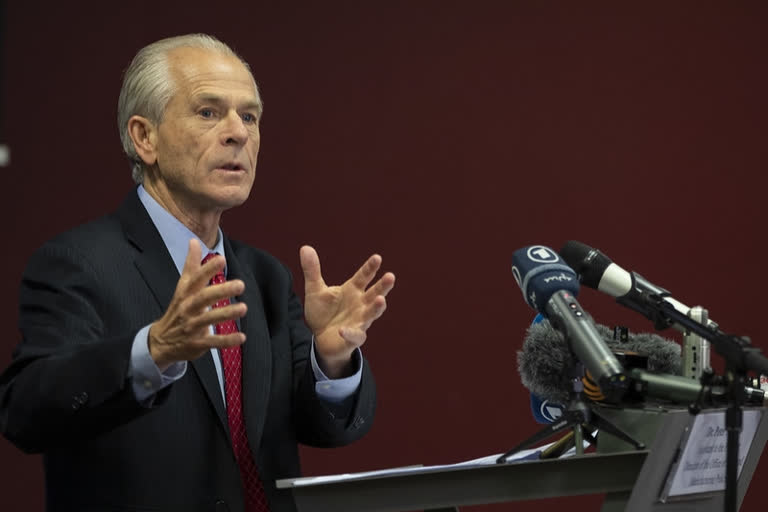New York: In the "cruelest irony" China, that blasted the world with 1 million coronavirus cases, now stands to gain from the fallout, exporting equipment and supplies needed to fight the pandemic, according to a US leader.
"It is the cruelest irony that this nation (US) is now dependent on China for production of many of these products," said New York's Democratic Governor Andrew Cuomo recently as he scrambled to get vital medical equipment and supplies to his state where the 102,987 coronavirus cases exceed China's overall 82,518.
Read also:Russia to the rescue? US, Moscow spar over aid deliveries
The COVID-19 crisis has brought home to the US how the global shift of manufacturing to China can make it beholden to Beijing in a crisis.
The US is not alone. India has also found itself -- like most countries -- dependent on China for medical supplies for fighting coronavirus that originated in the Asian giant.
Read also:Global diplomacy under the gun in time of coronavirus
When the pandemic ends, there could be a sharp rethinking in the US about globalisation and possibly boost President Donald Trump's "America First" policy, with a chain reaction around the world.
The US also has problems with major medical exporter India, but the spotlight has stayed away from it. After New Delhi, which sends pharmaceuticals worth $5.35 billion annually to the US, banned some exports due to the COVID-19 crisis, Washington pressured it to ease the restrictions.
The shortages of supplies needed for the pandemic have led to sharp increases in prices leading to greater profits for China.
Louisiana Governor John Bel Edwards has complained that prices have doubled for ventilators required to keep infected patients with advanced pneumonia alive.
After a process of deindustrialisation and transfer abroad of manufacturing over the last 35 years, the US now stands humbled by shortages when it needs medical supplies the most.
Trump has announced the creation of an "Airbridge" of 51 flights to ferry supplies mostly from China.
Washington has even bought equipment on concessional terms from Russia and brought them on a flight paid for by a Russian agency, much to the consternation of the Democrats and the media that consider Moscow an enemy for interfering in the 2016 election.
Last week, the UN that usually helps poor countries donated surgical masks to New York City.
On Friday, a Boeing 767 belonging to an American football team brought 1.2 million masks from China.
Successive US administrations, Republican and Democratic, went along with glorifying globalisation but now the intensifying crisis gives ammunition to Trump calls for "Buy American", a campaign platform ridiculed by the establishments of the two parties.
Former Democratic Vice President Joe Biden repeated the bipartisan establishment view that has empowered Beijing: "China is going to eat our lunch? Come on, man. I mean, you know, they're not bad folks, folks. But guess what, they're not, they're not competition for us."
White House Trade and Manufacturing Policy Director Peter Navarro said the lesson of the crisis "is that we are dangerously over-dependent on a global supply chain for our medicines, like penicillin; our medical supplies, like masks; and our medical equipment, like ventilators".
Cuomo sounded surprised by the shortages of simple things like masks and gowns: "It is unbelievable to me that in New York State, in the United States of America, we can't make these materials and that we are all shopping China to try to get these materials."
While these may be simple to make, ventilators that are sophisticated equipment costing around $25,000 have become the focus of the manufacturing crisis with states like New York demanding 30,000 while the federal stockpile has only 20,000.
While they cannot be made overnight, some industries like auto have the equipment that can be converted to manufacture ventilators.
Trump has reluctantly invoked the Defence Production Act (DPA) to compel the auto giant General Motors to switch to making them, while Ford Motors volunteered to manufacture them.
The order for ventilators was extended under the DPA to five other companies.
In a move that can have international repercussions, Trump used the DPA to order 3M to send to the US the masks it makes at its factories abroad and stop its exports.
After the coronavirus crisis is over, Navarro said that "the key here is having advanced manufacturing on US soil that can leapfrog other countries so we don't have to worry about competing against cheap sweatshop labour, lax environmental regulations, different tax regimes, and the massive subsidies of foreign governments who are actually directly attacking our industrial base".
One of the products that he mentioned was pharmaceuticals, which India exports.
IANS
